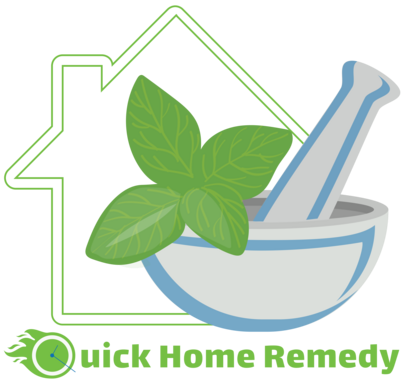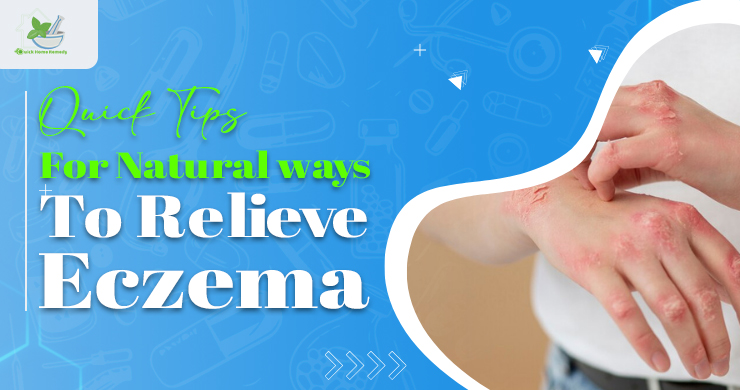
Eczema or atopic dermatitis is one of the most common chronic non-cosmetic skin diseases that plague the United States, with a prevalence of 9–30%. Common signs of this condition are inflammation, itching, redness, and scaly skin. Eczema is known to affect anyone at any age, but the common incidence is often observed among children. They have attributed the problem to several factors, such as genetic as well as environmental factors, a compromised skin barrier, immune dysfunction, and exposure to various physical agents such as irritants or allergens. Though eczema can be treated using oral drugs, topical steroids, and many prescription creams prescribed by a doctor, many people would always opt for natural remedies that can be taken without affecting the normal routine. There are various home remedies for eczema that can be of great help and even assist in the alleviation of the symptoms of eczema if one does not want to rely heavily on medication. In this article, I will look at some possible methods of skin calming and nourishing the skin naturally that can help to overcome the symptoms of eczema.
These remedies may bring relief and might be used for mild conditions; however, it is advisable to seek advice from a healthcare professional if the condition is severe. Eczema varies in severity, and the remedies discussed here should not replace professional medical advice but can complement ongoing treatments.
1. Potato and Lemon Remedy
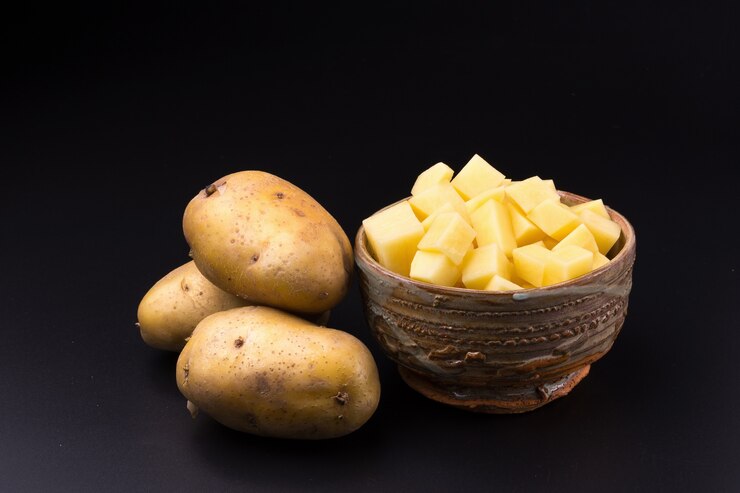
Potatoes can reduce inflammation, which may be beneficial when it comes to relieving skin inflammation and therefore are an excellent natural way to relieve eczema. Lemon and potato can help in alleviating the itching and redness common with dermatitis. Here’s how to use it:
- Grate one potato and mash it lightly, adding a few drops of lemon juice to the mixture.
- Put this mixture on the affected areas and let it settle on the skin for approximately 10 minutes.
- Lastly, rinse with lukewarm water and blot the area with a soft towel without rubbing it vigorously.
- Repeat this process daily for at least 10 days to see noticeable improvements.
2. Bitter Gourd and Neem Paste
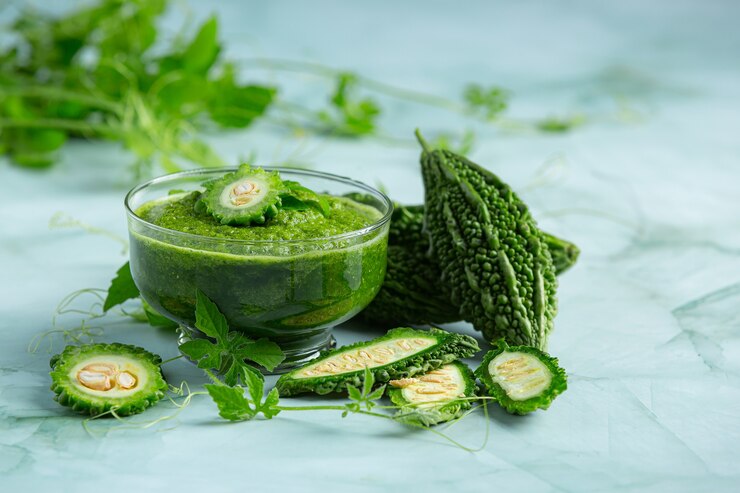
Bitter gourd and neem are both used for their excellent antimicrobial and anti-inflammatory impacts on the body. This remedy is useful in skin softening, inflammation reduction, and healing of areas affected by eczema.
- Take 100 ml of bitter gourd leaves and blend it to fine juice by adding ¼ cup of water.
- Mix two tablespoons of coconut oil and half a cup of neem leaves and make it a fine paste.
- Rub this mixture onto the area that is affected.
- You can leave it on the skin for 20-30 minutes, then wash it off with warm water.
- This paste needs to be used daily, for 10-12 days for better results.
This paste can be beneficial for various skin irritations beyond eczema, making it a versatile remedy.
3. Honey as a Skin Healer
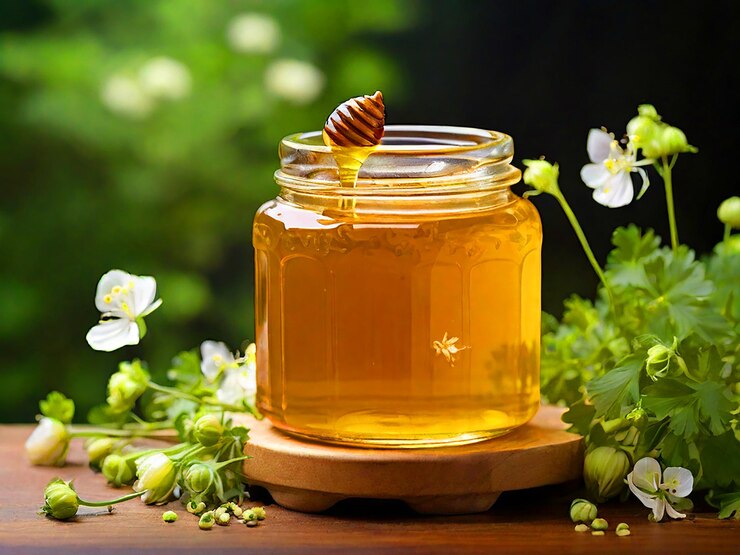
Honey is known to have antimicrobial properties and has been used since ancient times to treat injuries. It also aids in the retention of moisture and forms a shield over the skin so that the skin cannot be further aggravated.
- Wash the affected area with lukewarm water to open the pores.
- Take a small amount of honey of the thickness of the layer of skin and spread it evenly on the skin.
- Then leave it on the skin for a least 15-20 minutes before washing it off with warm water.
- Perform this type of massage every day to ease your condition and prevent a more severe flare of eczema.
Honey is especially effective for dry skin and can be a gentle option for those with sensitive skin.
4. Honey and Sugar Scrub
Skin exfoliation can help eliminate dead skin cells and also bring about healing within the skin. This honey and sugar scrub is perfect for the skin because, besides being an exfoliator, it will also make the skin moist.
- In a small bowl, mix 1 tablespoon of honey with 1 teaspoon of sugar.
- Gently scrub the mixture on the affected area for 2-3 minutes.
- Rinse with lukewarm water and pat dry.
- Use this scrub twice a week to avoid over-exfoliating, which can irritate the skin.
5. Baking Soda Relief
Another key component, baking soda, is a product that can be found in every household and is effective for getting rid of itching and inflammation of eczema. It can reduce inflammation on the skin and it also regulates the skin’s pH levels.
- Mix 2 tablespoons of baking soda with 1 tablespoon of water to form a paste.
- Apply the paste to the eczema-affected areas.
- Leave it on for about 5-10 minutes, then wash off with lukewarm water.
- Use this remedy once daily until the itching subsides.
6. Lemon Juice Treatment
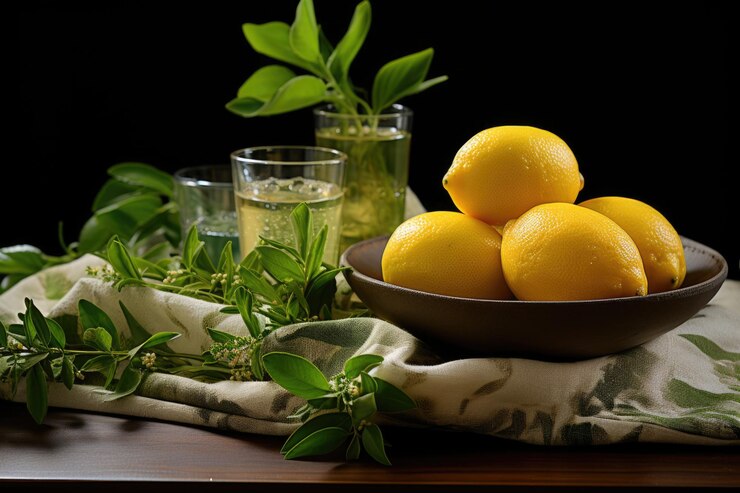
Lemon is an antioxidant that is rich in vitamin C, and it also contains antibacterial properties that make it one of the best natural remedies for eczema. It can also assist with skin lightening and decrease the appearance of scars resulting from eczema.
- Apply fresh lemon juice to the affected areas.
- Leave it on for 15-20 minutes before washing it off with cold water.
- Repeat this treatment 2-3 times a day for best results.
Be cautious when using lemon juice on sensitive skin, as it can sometimes cause stinging. Always do a patch test before applying it to larger areas.
7. Cabbage Leaf Compress
For inflammation, cabbage leaves can be used as a compress to enable relief of the irritated and itchy skin of the eczema patient. They also assist in decreasing inflammation, erythema, pruritus, and dermatitis herpetiformis.
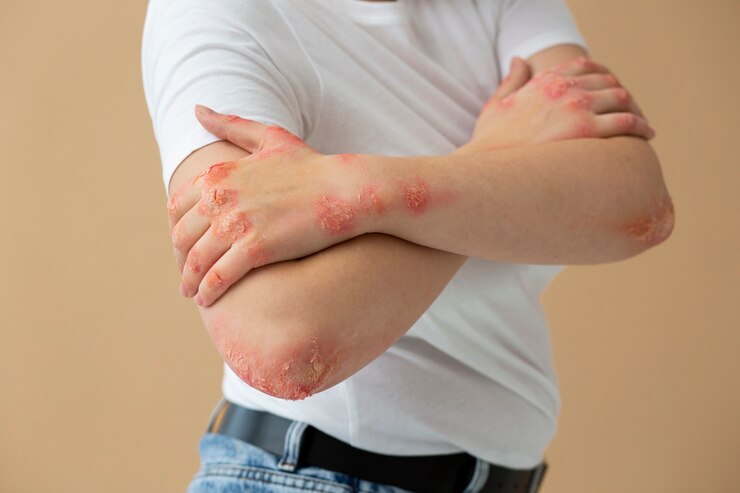
- Squash fresh cabbage leaves to extract their juices.
- Put the mashed leaves on the affected part and cover with a piece of cloth or bandage.
- Remove the compress after one hour and wash the affected area with warm water.
- This remedy can be used every day to get relief.
8. Carrot Paste
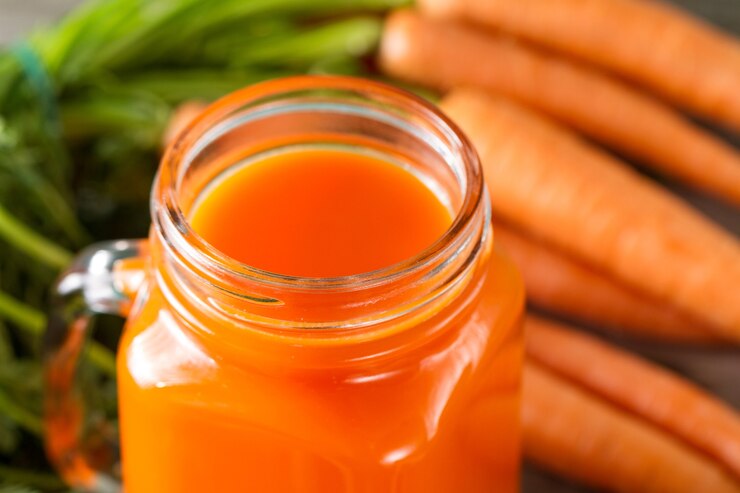
Beta-carotene, commonly found in carrots, is essential in skin renewal and the reduction of inflammation. This remedy is particularly effective for facial eczemas.
- Carrots should be peeled and boiled to softness.
- When the carrots are soft enough, mash them down to a paste and allow them to cool.
- Apply the paste to the affected areas and leave it on for 15 minutes.
- Rinse with cold water and gently pat dry.
- Use this remedy 2-3 times a week for the best results.
Additional Tips for Managing Eczema Naturally
- Moisturize Regularly: Keep your skin hydrated by applying a thick, unscented moisturizer or natural oils (like coconut oil) immediately after bathing.
- Avoid Triggers: Identify and avoid common eczema triggers such as harsh soaps, fragrances, stress, and allergens like dust mites or pet dander.
- Take Lukewarm Baths: Hot water can strip the skin of its natural oils, worsening eczema. Opt for lukewarm baths and consider adding colloidal oatmeal for its soothing properties.
- Wear soft fabrics: Choose breathable fabrics like cotton to avoid further irritation. Avoid wool and synthetic materials that can rub against the skin and cause flare-ups.
- Manage Stress: Stress can exacerbate eczema symptoms, so incorporating stress-relief techniques like yoga, meditation, or deep breathing exercises can be beneficial.
By using these natural remedies, you may find relief from eczema symptoms and improve your skin’s overall health. However, always monitor your skin’s reaction to these treatments and consult with a healthcare professional for personalised advice.
